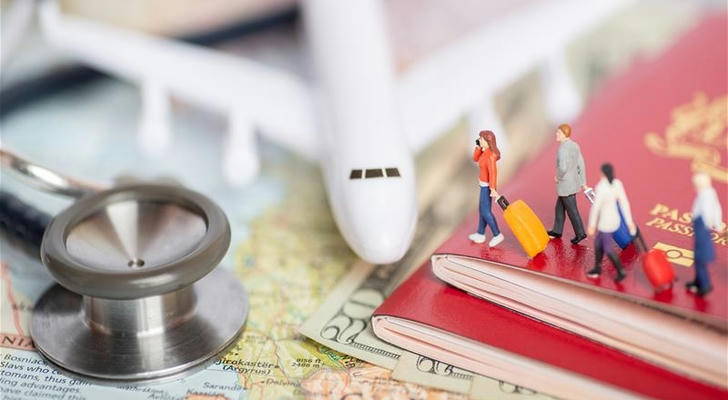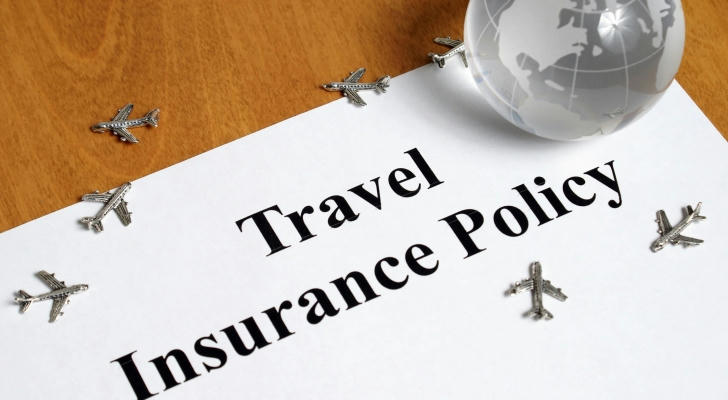✈️ When Is Travel Insurance Worth the Expense?
Traveling is exciting—until something goes wrong. A delayed flight, a lost bag, or a sudden illness abroad can turn your dream vacation into a costly nightmare. That’s where travel insurance comes in. But is it always worth it? For many Americans planning trips in 2025 and beyond, knowing when travel insurance is a smart investment can save not only money but also peace of mind.
In this article, we'll explore what travel insurance covers, when you might need it, how to choose the right plan, and when it's safe to skip it.

In this article, we'll explore what travel insurance covers, when you might need it, how to choose the right plan, and when it's safe to skip it.
🏦 What Is Travel Insurance, Really?
At its core, travel insurance is a financial safety net. Policies can cover a variety of risks including:
Trip cancellations and interruptions
Medical emergencies abroad
Lost or delayed luggage
Travel delays
Emergency evacuation and repatriation
Accidental death or dismemberment
Depending on the provider and the plan, coverage can range from basic to comprehensive. Premiums typically cost between 4% and 10% of the total trip cost, according to the U.S. Travel Insurance Association (UStiA).
🌐 Do You Really Need It? Ask Yourself These Questions
1. Is Your Trip Prepaid and Non-Refundable?
If you've invested thousands in airfare, accommodations, or tours that don’t offer refunds, insurance might be a wise backup plan.
2. Are You Traveling Internationally?
Most U.S. health insurance plans (including Medicare) do not cover medical expenses abroad. Travel insurance with medical coverage can be a literal lifesaver.
3. Is There Political Instability or Natural Disaster Risk?
Traveling to areas with recent unrest or frequent storms? Look for Cancel for Any Reason (CFAR) coverage or policies that include political evacuation.
4. Are You Participating in Risky Activities?
Standard policies may exclude coverage for skiing, scuba diving, or adventure sports. If you're planning these, consider a specialty policy.
5. Can You Afford to Self-Insure?
If losing the trip cost wouldn’t significantly impact your finances, skipping insurance might make sense.
📅 When It’s Absolutely Worth It
✅ Medical Emergencies Abroad
According to the Centers for Disease Control and Prevention (CDC), about 1 in 2 international travelers experience some health issue during their trip. A hospital stay in Europe or Asia can easily exceed $10,000. Emergency medical coverage ensures you're not paying out-of-pocket.
✅ Trips During Peak Hurricane Season
If you're vacationing in the Caribbean or Gulf Coast from June to November, insurance that includes weather-related cancellations is a solid investment.
✅ Group Travel or Family Trips
When multiple travelers are involved, there's more room for disruption—sick children, senior travelers, or missed connections. Insurance adds a layer of protection for the entire group.
✅ Cruises
Cruise lines have strict cancellation policies and limited onboard medical care. Specialized cruise insurance often includes emergency evacuation, which can cost $50,000 or more.

🚫 When It Might Not Be Necessary
❌ Short Domestic Trips
If you're flying a few states over and staying with family, insurance might not add much value.
❌ Flexible Itineraries
If your bookings are refundable or changeable without penalty, the need for insurance diminishes.
❌ You Already Have Coverage
Check your:
Credit card benefits (many include trip delay, baggage loss, or rental car coverage)
Employer-provided insurance
Health plan's international provisions
Don't double-pay for coverage you already have.
🔍 What to Look for in a Policy
💸 Coverage Limits
Look for at least $100,000 in emergency medical coverage
At least $250,000 for evacuation if traveling to remote areas
📄 Read the Fine Print
Some plans require you to file within 15 days of trip booking
Pre-existing conditions may be excluded unless you purchase a waiver
🌎 Use Reputable Providers
Travel Guard, Allianz, and Seven Corners are well-reviewed
Aggregator sites like Squaremouth or InsureMyTrip allow comparison shopping
🤝 Real-World Scenario: Was It Worth It?
YES: Angela, a 42-year-old teacher from Ohio, broke her leg hiking in Peru. Her travel insurance covered $12,000 in hospital bills, a medical evacuation, and three days in a hotel for her recovery. The plan cost her $180.
NO: Jason, a tech consultant, took a week-long trip to San Diego. He had no delays or issues, and his refundable hotel meant he didn’t need the $75 policy he bought "just in case."
🌍 Bonus: What About COVID-19?
Many policies now include COVID-related coverage, but not all. Some only cover medical treatment, while others include trip cancellation due to a positive test. Always verify:
COVID is treated like any other illness
Quarantine-related expenses are covered

🧳️ Final Thoughts: Smart Protection or Extra Baggage?
Travel insurance is a tool, not a must-have for every journey. The key is knowing your risks, evaluating your financial exposure, and choosing coverage accordingly. If you’re investing a significant amount in your travel or heading overseas, insurance is usually worth the peace of mind.
"Better to have it and not need it, than to need it and not have it."
